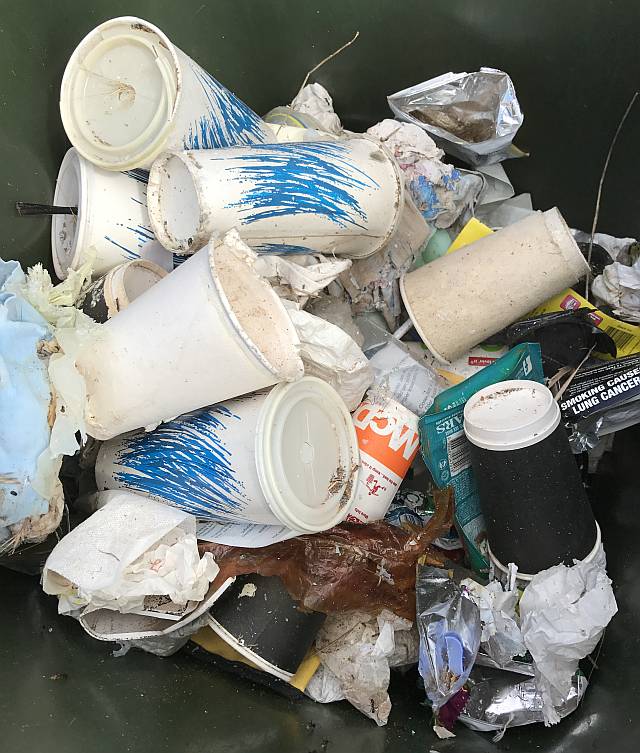|
Teaching our children ethics
I have long thought that our children should be taught basic ethics at school; at least ways of judging what is right and what is wrong and how and why to live a life with high ethical standards.One would also hope that they would be taught this at home, but to judge by the behaviour of many adults they themselves do not know, or perhaps not care, what is right and wrong.
Referring to the photo on the right, plainly it is wrong to throw one's rubbish onto a roadside, yet many people do it. They must know it is wrong, but presumably they care more for their own convenience than they do for our shared environment?
A person who throws his/her rubbish onto the roadside would not be a good teacher to their children about right and wrong.
(On another page I have discussed the similarities between throwing rubbish onto roadsides and dumping waste gasses into our shared atmosphere resulting in climate change, ocean acidification, ocean warming and sea level rise.)
|
|
A few examples of acts that were legal but quite unethical
Opposing the change to renewable energy, especially doing so dishonestly and from a position of power, is very wrong, but not illegal. (I've written on another page about wind energy opposition and also about how dishonestly opposing action on climate change from a position of power could well be called the greatest crime in the history of humanity.)
Australia's shameful treatment of a poor neighbour, East TimorThe Australian government, at best turned a blind eye, at worst was complicit in Indonesia's unprovoked and unjust invasion of East Timor in 1975. It was followed by 25 years of cruel and genocidal rule.The Australian Government betrayed East Timor again over the oil resources of the Timor Sea. The shameful act was done by Alexander Downer, a minister in the Liberal/National coalition government of John Howard. In 2020 the Australian Security and Intelligence Office (ASIO) bugged the East Timorese embassy in order to make a stronger case for taking rights to the Timor Gap oil and gas field away from Timor. This was plainly unethical, but probably not illegal. |
The USA government's hounding of Wikileaks' founder Julian Assange over the exposure of the many wrongdoings of the USA government is quite unethical. This hounding may be legal, but is certainly wrong.
The Morrison government:
- Car park rorts affair of 2019
- sports rorts affair of 2020;
- Mathias Cormann: jobs for the boys
Australian federal governments, of both major parties, use taxpayers' money to advertise what a 'good job they are doing'. Using taxpayers' money for advertising on behalf of a political party is obviously unethical (but is probably legal).
And then there are acts that are of questionable legality but are right
- As mentioned above, Wikileaks founder Julian Assange has suffered loss of liberty and threat of prosecution, imprisonment and worse in the USA because of the exposure of the wrongdoing of the USA government. Assange's acts in this case were ethically justified but illegal. Some of the other actions of Wikileaks may well have been unethical and unjustified.
- The unethical bugging of the Timorese embassy (mentioned above) was exposed by a person only publicly known as Witness K. He and his lawyer, Bernard Kalerie, have been hounded for justifiably and rightly exposing this despicable act of the Australian government. See Witness K and the 'outrageous' spy scandal that failed to shame Australia
- I have planted native plants in a long-neglected piece of land in the center of Crystal Brook. The authority that had responsibility for the land opposed my work. For more information see Crystal Brook Central Park
|
|
Letter of the law or spirit of the law?
Many readers will be aware of the long standing stricture "ignorance of the law is no excuse" for breaking the law. If one must be aware of all relevant laws then isn't there is an implicit assumption that one is capable of interpreting the meaning and intention, or spirit of those laws?
Looking at the question from another angle, isn't it more important that one knows what is right and wrong rather than knowing the law? That is, having a good understanding of the principles of Ethics?
